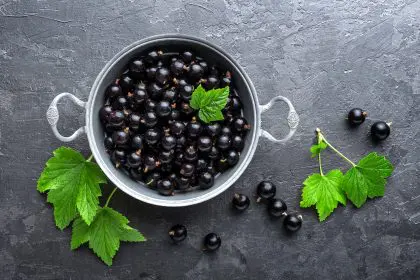That bottle of probiotic pills sitting in your refrigerator cost you nearly $50, but what if the real digestive heroes were hiding in humble jars on the shelf below? Fermented foods have been quietly supporting human gut health for thousands of years, long before probiotic supplements hit the wellness scene with their scientific-sounding bacterial strains and hefty price tags.
Recent research suggests these traditional foods might actually deliver more comprehensive benefits than their pill counterparts. While supplement manufacturers have convinced millions to swallow capsules promising digestive harmony, the most powerful gut-healing foods have been sitting in plain sight at your local grocery store, often at a fraction of the cost.
The living food revolution your ancestors knew about
Fermentation isn’t some new wellness trend invented by social media influencers. This preservation technique dates back thousands of years, with evidence suggesting humans have been fermenting foods since at least 7000 BCE. Our ancestors weren’t trying to improve their microbiome diversity or reduce inflammation. They simply needed to keep food edible without refrigeration.
What makes fermented foods special is their living nature. Through the fermentation process, beneficial bacteria transform the sugars and carbohydrates in food into compounds like lactic acid, creating an environment where these microorganisms thrive while harmful bacteria cannot survive. The result is a food teeming with life, literally swimming with beneficial microbes that arrive in your digestive system ready to work.
Unlike many mass-produced probiotic supplements that contain just a handful of bacterial strains, traditionally fermented foods often host dozens or even hundreds of different beneficial microorganisms. This diversity matters tremendously. Your gut doesn’t just need more bacteria. It needs a wide variety of species working together in a complex ecological system.
The bacterial communities in fermented foods have evolved together, creating synergistic relationships that allow them to survive the journey through your digestive tract more effectively than isolated strains in supplements. They arrive with their own food supply and protective compounds, significantly increasing their chances of successfully colonizing your gut.
Yogurt’s untold story beyond calcium
Yogurt might seem ordinary, but traditional versions pack extraordinary benefits that go far beyond the probiotic content listed on the label. While commercial yogurts often contain only a couple of carefully selected bacterial strains, traditional yogurt made through slower fermentation methods hosts a much wider microbial community.
What makes yogurt particularly special is its dual action in your digestive system. The living bacteria directly contribute to your gut microbiome, while the metabolites they’ve already produced during fermentation provide immediate benefits. These include short-chain fatty acids that fuel your colon cells and antimicrobial compounds that help control harmful bacteria.
Look beyond mass-market brands to find yogurt with maximum benefits. Traditional Greek, Bulgarian, and Icelandic styles typically undergo longer fermentation periods, allowing for more bacterial diversity and higher concentrations of beneficial compounds. The tangier flavor profile of these varieties indicates a richer bacterial transformation has occurred.
For the most powerful benefits, seek out yogurt labeled with “live and active cultures” and check that it hasn’t been heat-treated after fermentation, which kills the beneficial bacteria. Even better, look for yogurt made from grass-fed milk, which provides a richer starting medium for bacterial growth and contains more beneficial omega-3 fatty acids.
Kimchi’s fiery gut-healing potential
This Korean staple has exploded in popularity, and for good reason. Kimchi combines the probiotic benefits of fermentation with the prebiotic advantages of fiber-rich vegetables and the anti-inflammatory properties of its spices, creating a true digestive superfood that no probiotic pill could possibly replicate.
The fermentation process transforms ordinary cabbage into a complex ecosystem supporting numerous beneficial bacterial species, including various Lactobacillus strains. These bacteria produce lactic acid, which creates the characteristic tangy flavor while simultaneously acting as a natural preservative and gut health supporter.
What makes kimchi truly superior to probiotic supplements is its complete package approach. The cabbage provides insoluble fiber that physically scrubs your intestinal walls and feeds beneficial bacteria. The garlic and ginger contain powerful antimicrobial compounds that selectively target harmful bacteria while sparing beneficial ones. The chili peppers contribute capsaicin, which can reduce inflammation and stimulate digestive enzymes.
Studies have shown that regular kimchi consumption may improve cholesterol levels, reduce inflammation markers, and even help manage weight. These benefits stem not just from the live bacteria but from the complex interactions between the microbes and the bioactive compounds naturally present in the ingredients.
Kombucha’s effervescent healing power
This fizzy fermented tea has transcended its hippie health food origins to become mainstream, but many consumers don’t realize they’re drinking something fundamentally different from probiotic supplements. Kombucha contains both bacteria and yeasts working in symbiotic harmony, creating a diversity of microorganisms rarely found in pill form.
The fermentation process transforms regular tea into a probiotic powerhouse containing organic acids, enzymes, and a wide range of beneficial compounds. The acetic acid produced during fermentation has antimicrobial properties that can help control pathogenic bacteria in both the kombucha itself and potentially in your digestive tract.
What makes kombucha particularly valuable is its ability to deliver probiotics along with polyphenols from the tea. These plant compounds act as powerful antioxidants and may help reduce inflammation while also serving as prebiotics that feed beneficial gut bacteria. This combination of probiotics plus their food source gives kombucha an advantage over isolated bacterial strains in supplements.
For maximum benefits, look for raw, unpasteurized kombucha with no added sweeteners. The slight vinegar smell indicates a healthy fermentation process, though the flavor should remain pleasantly tangy rather than harshly acidic. Small-batch varieties often contain more diverse microbial communities than mass-produced versions.
The surprising power of real sourdough bread
Unlike most probiotic supplements that target only your gut, traditionally fermented sourdough bread starts working its magic from your very first bite. The fermentation process pre-digests the gluten and phytic acid in the wheat, making the bread more digestible and its nutrients more bioavailable even before it reaches your stomach.
True sourdough relies on a starter culture containing wild yeasts and lactic acid bacteria that transform the flour over many hours, breaking down complex carbohydrates and proteins. This lengthy fermentation creates bread with a lower glycemic index that won’t spike your blood sugar like conventional bread.
While the baking process kills the live bacteria, their beneficial metabolites remain intact. The organic acids produced during fermentation modify the starches in ways that support digestive health and may even improve glucose metabolism. Additionally, these acids help preserve the bread naturally without the need for artificial preservatives.
Finding authentic sourdough requires some detective work. Many commercial “sourdough” breads merely contain flavoring rather than going through true fermentation. Look for bread with a short ingredient list, ideally just flour, water, salt, and starter. Real sourdough should have a distinctive tangy aroma and chewy texture with an irregular hole structure.
The fermented revolution in your kitchen
The most powerful aspect of fermented foods might be their accessibility. While probiotic supplements require ongoing purchases, fermentation skills allow you to transform affordable ingredients into digestive superfoods in your own kitchen.
Starting with simple ferments like sauerkraut requires nothing more than cabbage, salt, and a clean jar. The initial investment of time creates not just one serving but an ongoing supply of living food. As your confidence grows, you can expand to kefir, kimchi, and even your own sourdough starter.
Home fermentation connects you to food traditions spanning generations and cultures worldwide. The same basic processes that preserved food for our ancestors now provide us with potent health-promoting foods that support not just gut health but overall wellbeing.
While probiotic supplements certainly have their place, especially for specific therapeutic needs, the diverse microbial communities and bioactive compounds found in traditional fermented foods offer broader benefits that no capsule can contain. By incorporating these living foods into your daily diet, you’re not just supporting your microbiome but participating in one of humanity’s oldest and most beneficial food traditions.


















